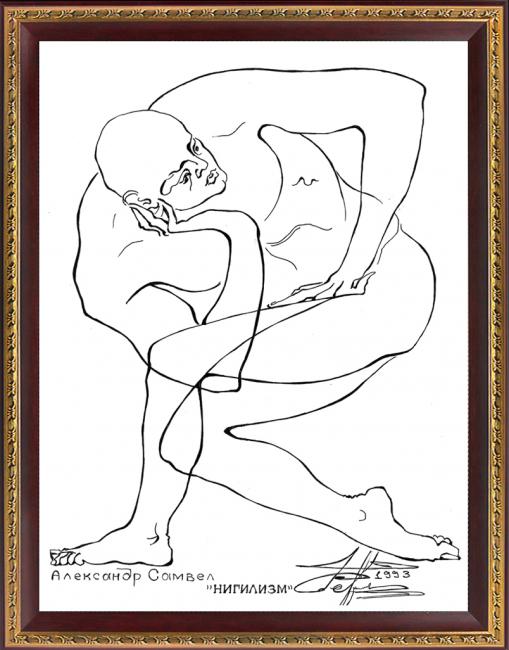Oh, how I love the lively word:
It’s old and new as is the world,
It greets us with the courteous bows,
It grips us when we take the vows.
F. Nietzsche.
The «lively» word «Nihilism» runs throughout Nietzsche’s «mature» philosophical prose. Nihilism (Latin nihil — nothing) is a world outlook position which manifests itself in the negation of meaningfulness of human existence, significance of common moral and cultural values, denial of authority of any kind. In general, Nihilism stood for an acutely negative attitude to different sides of social life.
Nietzsche was the first philosopher to feel and depict in his books the overall crisis of the western world, western spirit, western culture: religion, philosophy, morality, law, politics, social life, science, art, and above all, the idea of permanent progress.
Nietzsche was convinced the European culture and civilization are on the brink of an abyss, and Nonexistence and Nothing are treading on their heels. Once solid and unshakable, the foundation of Europe (religious, moral, social, scientific) falls to pieces.
The spiritual condition of his age is characterized by Nietzsche with the word “Nihilism”. According to Nietzsche, nihilism means that the values up to now considered as supreme have lost their significance. On the philosopher’s banner it is said, “There’s no goal, no faith, no truth, no answer to the question “what for?” ”
The essence of Nietzsche’s nihilistic doctrine boils down to the fact that everything that is happening (happened or will happen) in the universe, on the Earth, in history, in the human society, in a person’s mind is totally useless, aimless and vain…
In the drawing we can see a naked man, who has bent in an awkward pose and is holding his head. At closer examination it can be noticed that the head exists separately from the body, whereas the hand is trying to either hold or get rid of it, as if it were a shot, which the man wants to throw far away. The structure of the composition is constituted by a stratification of grounds – chaos, which in its turn creates a new order and harmony.
